I’ll be talking quite a bit this week about expert consulting and testimony, so the topic of what it means to be an ethical defense expert is on my mind. But the truth is that lately, I have been thinking a lot about what it means to work for the defense, particularly when you may be interviewing and/or testifying opposite a treating medical-forensic examiner. The reality is that no one really teaches a clinician how to be good defense expert and the ways in which that role differs from being a good prosecution expert. However, there are differences, even as the goal (regardless of who has hired you) continues to be objectivity.
There seems to be a common misperception that in order to be helpful to the defense you must destroy the treating clinician, and this is an unfortunate approach. With very few exceptions, I take the good camper approach to all treating clinicians, even as the defense expert: leave people a little better than when you found them. People are naturally wary of talking with the defense team; it costs you nothing to be collegial even while identifying issues on the part of the exam, the clinician or the documentation. There are a million ways to determine what success looks like in this work, but one sure-fire way to know that you have failed is when the clinicians you come in contact with want to quit the profession after talking with you. And yet, that’s exactly what I have heard on more than one occasion after clinicians have finished interviewing with defense experts. Can you imagine being so caustic that you literally drive someone from the profession?
By the way, the flip side also holds true: in order to be helpful to the prosecution, it is not your job to save the treating clinician. Sometimes exams are done badly; sometimes the documentation is so poor as to be utterly unhelpful. Sometimes people embellish their credentials (true story) and they have to face the music on cross-exam. Experts don’t make these cases. Experts are simply one part of a larger strategy. We educate, we advise. We don’t win or lose trials.
Every interaction with other clinicians is an opportunity for mentoring, even in the courtroom. Anyone who has been doing this work for the years it takes to be a good expert at trial should commit to growing the profession, not tearing it down. It is the very least our patients deserve.
________________________________
Have you checked out the FHO store lately? You can find the newest research brief, Applying The Strangulation Research To Expert Testimony In Cases With Adult Victims. Or purchase the complete set of three (Strangulation, Aging Bruises, and Consensual Sex Injury) for a special price.


1 reply on “Working for the Defense”
Thank you Dr. Markowitz for your professionalism. No one needs to be torn to shreds. I take every interview with the treating clinician as an opportunity for peer review and making a new friend. It is true that there can be many issues with the treating clinicians exam or documentation, however you can still find a way to ensure that clinician does not feel personally attacked.